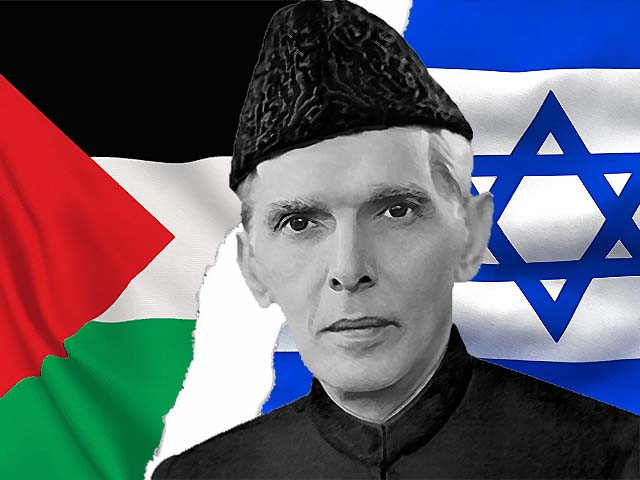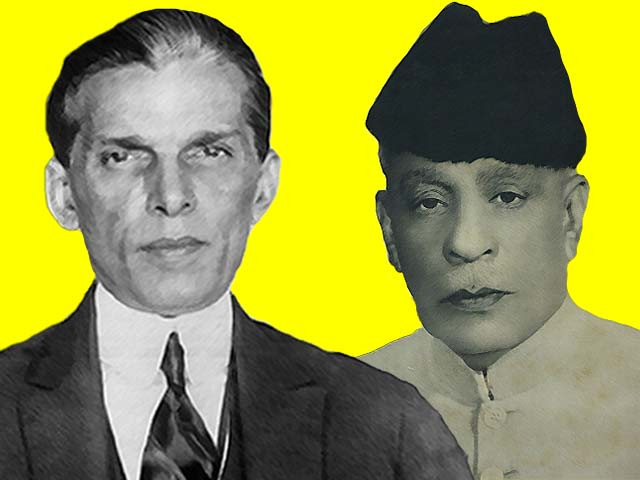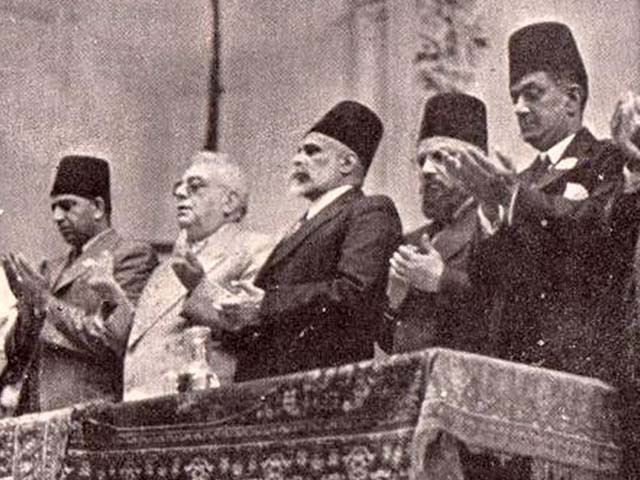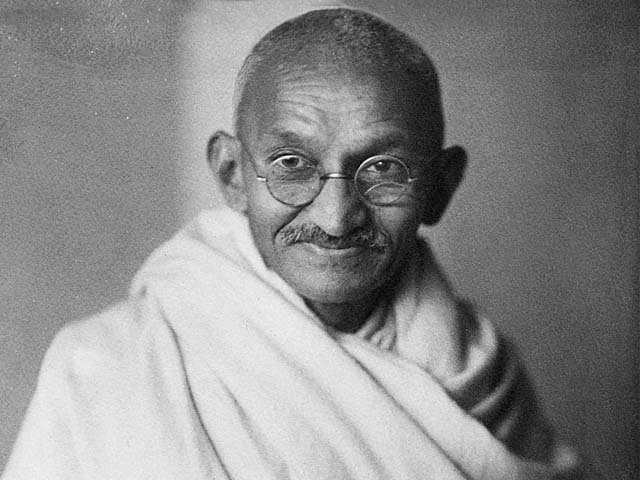
Jinnah, Palestine and Israel
Discussions on the Palestine issue are perpetual in Pakistan given the current Ramadan bombing and settler violence by the Israelis, Human Rights Watch declaring Israel’s policies crimes of apartheid, and the flirtation of part of Pakistan’s press with the idea of the country recognising Israel. Pakistanis frequently appeal to the role model of the country’s founder Muhammad Ali Jinnah for future decisions. History, however, tends to get lost in this, being replaced by half-truths and obfuscations. It is Jinnah’s conduct towards the Palestine issue to which we turn.
The All-India Muslim League had been taking a keen interest in global Muslim affairs in the second decade of 20th century and in their Delhi session of 1918 passed resolutions asking for the protection of the institution of the Caliphate and protesting the occupation of Muslim holy sites such as Jerusalem [1]. When the resolution regarding Caliphate was put to the vote, Jinnah stated that under the Muslim league constitution it had no right to dabble in the foreign politics of the British government. Finding the members opposed to it, he left the premises [2]. Some Pakistanis believe this to be the end of his tether with pan-Islamism. But, he seemed to have had a change of heart afterwards for in summer of 1919, after the War, Jinnah headed a delegation in London seeking a private interview with the prime minister on the issue of Caliphate. When refused, he instead put his signature on a memorial sent to the same office on 27th August [3].
On 11th May 1920, the peace terms were announced and the Caliphate was divided and occupied. At the Muslim League special session at Calcutta in September 1920, Jinnah presided. In his address he said, “First came the Rowlatt Bill – accompanied by the Punjab atrocities - and then came the spoilation [sic] of the Ottoman Empire and the Khilafat. One attacks our liberty, the other our faith”. He went on, “Unchivalrous and outrageous terms have been imposed upon Turkey and the Ottoman Empire has served for plunder and been broken up by the Allies under the guise of Mandates.” [4] Then he said, “And what of the sacred land of the Crescent and the Star and the blue and golden Bosphorus - its capital seized and the Khalifa virtually a prisoner, its territories overrun by Allied troops – groaning under an imposition of impossible terms. It is a death warrant, not a treaty” [5]. As many Pakistanis know well, Jinnah was indeed opposed to Gandhi’s noncooperation movement that was supported by Khilafat Conference due to his dislike for mass politics (at the time) in favor of constitutional methods. However, in the same session he left it open for the members to join it or not.
It is from this beginning that we understand his later stance on Palestine and Israel. In the wake of the Arab Revolt (1936-1939), the Muslim League which had been passing resolutions with regards to Palestine continuously, ramped-up its intensity. In Patna session of December 1938 Jinnah in his presidential address described the slain Arabs as martyrs and condemned the ‘British imperialism’ for ‘placating the international jewry’ and Resolution V condemned the Balfour Declaration as an instrument of furthering British imperialism [6]. In October 1939 Jinnah was authorised by the Muslim League Working Committee to pressurise the Viceroy to meet Arab demands on Palestine [7]. World War II had just erupted and with support of the largest party, Indian National Congress, not forthcoming, the British gave increasingly more importance to League in return for support with the war. At the 1939 Roundtable Conference on Palestine Jinnah sent Chaudhry Khaliquzzaman and Abdur Rehman Siddiqui to aid the Palestinians and the Grand Mufti Amin Al-Husseini [8]. Jinnah in July 1939 criticised the British White Paper and its solution of a single state and limited Jewish immigration, wanting them to meet Arab demands instead [9]. He promised support to the Supreme Arab Council [10] and opened the Palestine Fund [11], reiterating his demands at the historic Lahore Session of March 1940 [12].
Throughout the rest of the War Jinnah continued his support for Arabs in Palestine. In 1946 he protested several times the change in British policy towards Jewish immigration and calls by the Joint Anglo-American Commission of Inquiry into Palestine to establish a Jewish homeland [13]. In February 1946, Jinnah told a New York Times correspondent that he would go to any lengths to help the Palestinians. When asked to define ‘any length’, he said, ‘It means whatever we can do, violence, if necessary’ [14]. Having just won an overwhelming majority of Muslim seats in the elections, the British took this threat very seriously with regards to internal trouble in India and future of Pakistan as a belligerent pan-Islamic country vis-a-vis creation of Israel. It may have caused them to create hurdles in acceptance of Pakistan itself (see for example Viceroy Wavell’s letter to Henderson, 25th April 1946). Jinnah reported on 17th January 1946 in a speech that King Ibn-i-Saud was offered 25 million pounds by a Jewish agency to remain silent on Pakistan issue. The King rejected it. Jinnah even demanded the expulsion of existing Jews to Australia, Canada etc [15]. Two months after the creation of Pakistan in October 1947, Jinnah told Duncan Hooper in an interview that partition of Palestine would be the ‘gravest disaster’ and Pakistan would give its ‘fullest support to the Arabs’ [16].
By this time Jinnah’s health had started to fall, his energy consumed by nascent Pakistan and the Kashmir problem. Nevertheless, when the partition plan was approved by the United Nations in November 1947, he wrote to President Truman in December to desist from partitioning Palestine [17]. Jinnah told Robert Simson the same month that partition was 'unjust and cruel' and pledged to 'help cause of the Arabs in Palestine in every possible way’ [18]. Israel declared independence on 14th May 1948. Pakistan has never recognised it.
We must also consider, briefly, the allegation that Jinnah was inspired by Zionism to create Pakistan (Devji, p. 20). The alleged presence of some books about Zionism and European Jewry in Jinnah’s library do not prove he was inspired by them, especially when one studies the above struggles of his life against it. The same library is said to have anti-Zionist material as well. Moreover, Jinnah read on a variety of topics such as Armstrong’s biography of Ataturk [19] to Ameer Ali’s Spirit of Islam [20]. Unlike what Devji argues, Muslim League gave example of Jews to show British hypocrisy on their denial of Muslim right to self-determination in India. The League in this context gave examples of a variety of entities such as the United States of America and Europe fractured into tiny states [21]. Therefore, the issue of Zionist inspiration is incorrect.
It is unlikely that Pakistan would recognise Israel given this historical precedent. The country would erupt in protest and any government that plans to take this step would not be voted back into power. Jinnah’s long endeavor over Caliphate, Palestine and Arab rights, spanning three decades, is likely to maintain Pakistan’s current stance on Israel in future.
References:
[1] S.S. Pirzada, ‘Foundations of Pakistan’, vol I, p. 500.
[2] C. Khaliquzzaman, ‘Pathway to Pakistan”, p. 43-44.
[3] Archives of the Freedom Movement, Islamabad, vol. 499, pp. 50-54.
[4] Pirzada, vol. I, p. 542.
[5] Ibid., p. 544.
[6] S.S. Pirzada, ‘Foundations of Pakistan’, vol II, p. 307.
[7] S.S. Pirzada, ‘Foundations of Pakistan’, vol III, p. 309-313.
[8] Khaliquzzaman, pp. 201-210.
[9] Pirzada, vol. III, p. 299.
[10] Quaid-i-Azam Papers, F. 479/14
[11] Ibid., F498/29
[12] Indian Annual Resgiter, 1940, Vol. I, 307-308
[13] Ahmed Waheed, “Nation’s Voice”, vol. III, p. 213.
[14] Ahmad Waheed's 'Nation's Voice', Vol IV, pp 439-440.
[15] S. S. Pirzada, “Quaid's Correspondence”, p. 155.
[16] M. R. Afzal, ed., “Selected Speeches and Statements of Quaid-i-Azam Muhammad Ali Jinnah”, p. 439.
[17] https://history.state.gov/historicaldocuments/frus1947v05/d909
[18] National Archives of Pakistan, 19 December 1947, F. 188, GG/15-6.
[19] H. Bolitho, ‘Jinnah: Creator of Pakistan’. p. 85.
[20] Riaz Ahmed, ‘Quaid-i-Azam Mohammad Ali Jinnah: The Formative Years’
[21] M. L. Becker, “The All-India Muslim League”




COMMENTS (20)
Good well researched and insightful write-up. Thanks for compiling it
Jinnah Was A Real Hero Of The Nation This Is Really A True Article
Great contribution. Most of our fellow citizens are unaware of the vision of our quaid towards Palestine and the illegal annexation of their land by zionist due to adoption of balfour declaration.
It is unlikely that Pakistan would recognise Israel given this historical precedent. Threading a bunch of out-of-context Jinnah quotes together doesn t make a precedent. What were Jinnah s SPECIFIC objections to the Jewish State exactly If these objections have been addressed there s really nothing left is there No reason of Jinnah s left to oppose Pakistan s recognition normalization and friendship with Israel.
Jinnah s objections are not the only reason why Pakistan doesn t and should not recognize Israel. It s just one of the ways we justify our stance i.e. in line with our founder.
A very sincere and focused approach to the issue and needed badly. Good work
Comments are moderated and generally will be posted if they are on-topic and not abusive.
For more information, please see our Comments FAQ